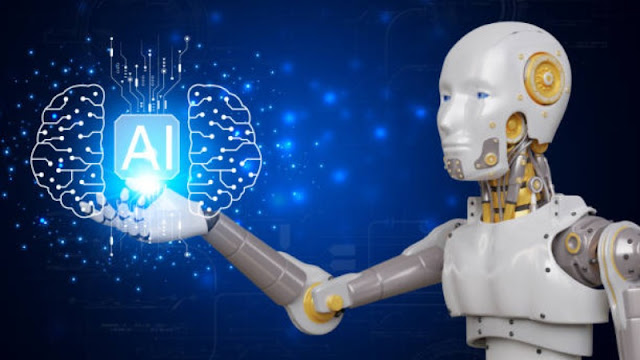.jpg)
Introduction
In recent years, Artificial Intelligence (AI) has emerged as a powerful force in various fields, from healthcare to finance. One area where AI shows great promise is in revolutionizing addiction treatment. Addiction is a complex and challenging condition that affects millions of people worldwide. Traditional treatment approaches have limitations, but integrating AI could open new avenues for more effective and personalized interventions. This thing will explore five ways AI could revolutionize addiction treatment. Read More: biztipsweb
Predictive Analytics for Early Intervention
One of the key challenges in addiction treatment is identifying individuals at risk before the situation escalates. AI, particularly through predictive analytics, can analyze vast datasets to identify patterns and risk factors associated with addiction. By utilizing machine learning algorithms, AI can predict which individuals are more likely to develop addictive behaviors based on various factors such as genetic predisposition, environmental influences, and behavioral patterns.
This predictive capability enables early intervention, allowing healthcare professionals to target preventive measures and support to those at higher risk. By identifying and addressing addiction risk factors early, AI can potentially prevent the development of full-blown addiction, leading to more successful treatment outcomes.
Personalized Treatment Plans
AI excels in processing and analyzing large amounts of data, and this capability can be harnessed to create personalized treatment plans for individuals struggling with addiction. Traditional treatment approaches often follow a one-size-fits-all model, which may not be optimal for addiction's diverse and complex nature.
Through AI, treatment plans can be tailored to an individual's needs, considering genetic predispositions, co-occurring mental health conditions, and responses to previous interventions. This personalized approach can significantly enhance the effectiveness of treatment by addressing the unique challenges and underlying causes of each person's addiction.
Real-time Monitoring and Support
AI-powered monitoring tools offer the potential for real-time tracking of an individual's progress during addiction treatment. Wearable devices and smartphone applications can collect data on various physiological and behavioral metrics, providing valuable insights into the individual's daily life and recovery journey.
AI can detect early signs of relapse or distress by continuously monitoring factors such as heart rate, sleep patterns, and stress levels. In response, automated interventions or alerts can be triggered to provide immediate support, such as connecting the individual with a counselor or sending motivational messages. This real-time monitoring and support system can be a powerful tool for maintaining long-term recovery.
Virtual Therapeutic Interventions
AI can enhance the accessibility of therapeutic interventions through virtual platforms. Virtual therapists powered by AI can offer round-the-clock support to individuals in recovery. These virtual interventions can take various forms, including chatbots, virtual reality therapy sessions, and interactive applications.
Virtual therapists can provide consistent, non-judgmental support, helping individuals navigate challenges and reinforce positive behaviors. The convenience and accessibility of virtual therapeutic interventions can overcome barriers to treatment, especially for those who may face geographical or social obstacles to attending in-person sessions.
Data-driven Insights for Treatment Improvement
As AI systems process large volumes of data generated from various sources, they can contribute to improving addiction treatment strategies. Analyzing treatment outcomes, patient responses, and intervention adherence can provide valuable insights for refining and optimizing treatment approaches.
By identifying patterns of success and failure, AI can contribute to evidence-based practices in addiction treatment. This continuous feedback loop allows for the evolution of treatment protocols based on real-world data, leading to more effective and efficient interventions over time.
Conclusion
The integration of AI into addiction treatment holds great promise for improving outcomes and addressing the complex nature of this condition. From early intervention through predictive analytics to real-time monitoring and personalized treatment plans, AI offers innovative solutions that can revolutionize how we approach addiction treatment. While challenges and ethical considerations must be addressed, the potential benefits of leveraging AI in addiction treatment are substantial, providing hope for a future where individuals battling addiction can receive more effective and tailored support.